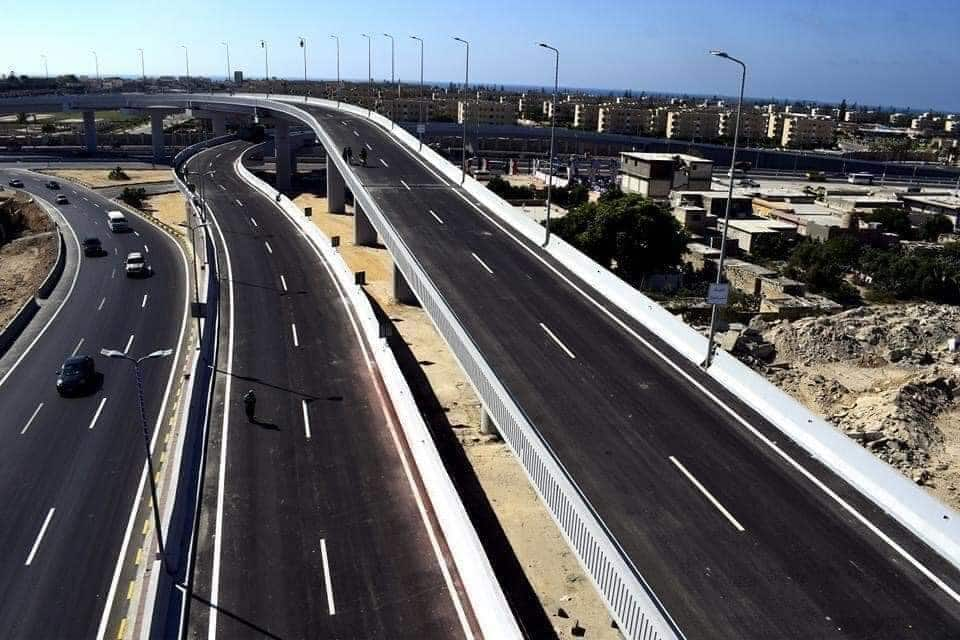It is becoming increasingly important to accelerate the building and maintenance of roads across the country. The presence of poor infrastructure can hamper trade and undermine economic growth, which makes a good road network essential for the quick conveyance of goods to intended consumers across the continent.
Roads are not only crucial for economic development and growth, but they also provide essential social benefits. Access to employment, social, health, and education services makes road infrastructure a vital public asset that must be maintained and expanded to stimulate economic and social development.
However, neglect over the years has resulted in the degeneration of many federal roads in Nigeria into a state of abject disrepair. This has caused higher costs to the government and taxpayers. The lack of attention to maintenance has also resulted in many road networks in Nigeria not being in good condition, which can cause irreversible deterioration of road networks if insufficient maintenance is carried out.
The Federal Road Maintenance Agency (FERMA) is responsible for efficiently monitoring and administering road maintenance with the objective of keeping all federal roads in good and safe conditions. However, the agency’s presence on federal roads has been less conspicuous in recent times, which calls for more funding for the federal agency.
While the current government has been undertaking broad-spectrum repairs of roads, more attention to maintenance is necessary. Proper maintenance not only preserves current assets but also lowers future costs for citizens, road users, taxpayers, and road owners. This would prevent these assets from depreciating in value, provided that timeeous investment is carried out.
The importance of efficient transportation systems in today’s interconnected global economy cannot be overstated. In order to create a pro-growth economic environment, it is essential to have physical infrastructure that facilitates the mobility of people, products, and information. As the world becomes increasingly networked, interdependent, and service-oriented, the ability to transact business efficiently, safely, and with ease is becoming more and more important for economic development, social cohesion, and cultural revival.
One critical aspect of efficient transportation is good road networks. They are essential for exports, as exporters cannot thrive when accessing ports in Lagos because of the bad state of roads leading to Apapa. A situation where trucks transporting produce to be shipped overseas spend weeks on the road before getting to the export terminal does not show that the government is truly ready to diversify Nigeria’s monolithic economic base.
Good road networks are also essential for increasing distribution and consumption, which are critical for any economy to develop. Without good road networks, distribution and consumption cannot increase, even if the population keeps growing. As a result, many rural poor in Nigeria do not have access to markets, leading to unquantifiable agrarian products perishing every year, making life unlivable for many. In an attempt to escape poverty, many unskilled youths migrate from rural areas to urban centers, where their hope for a better life is often quashed, and they become social misfits.
One way that the government can demonstrate its commitment to creating an enabling environment for inclusive economic prosperity is by prioritizing the development of effective transportation systems, including good road networks. The existential plight of the rural poor will experience significant improvement when they have access to markets in urban centers. When economic activities intensify in rural areas, rural-urban migration will decline, and by implication, crime rates in cities will decline, making Nigeria safer. Safety and security also contribute to economic development.
Good road networks should also be seen as agents of national cohesion, as they can foster intercultural dealings and dialogue. When people are able to travel from place to place, they develop multiple windows of perception of the world around them, which enhances their understanding of their lived world. This potentially abates ethnoreligious tensions and rifts.
Efficient transport systems create socioeconomic and cultural opportunities that foster multiplier effects. The spinoffs of efficient transport systems include improved accessibility to markets, employment generation, greater investments, and the development of tourism, among others. Conversely, deficient transport systems have multifaceted negative human and economic implications, including lower quality of life, unharnessed economic opportunities, wastage of raw materials, and waste of man-hours.
As Nigeria competes with 53 other African nations, giving attention to road maintenance will bring widespread benefits by ensuring that goods can flow freely from farm to market and from factory to market. Countries with better road networks stand to benefit more than countries where goods may get stuck on the road for days and perish due to bad roads. Therefore, it is imperative that the federal government fast-tracks the building and maintenance process to ensure that Nigeria’s road infrastructure is in good condition to support economic growth and development.





